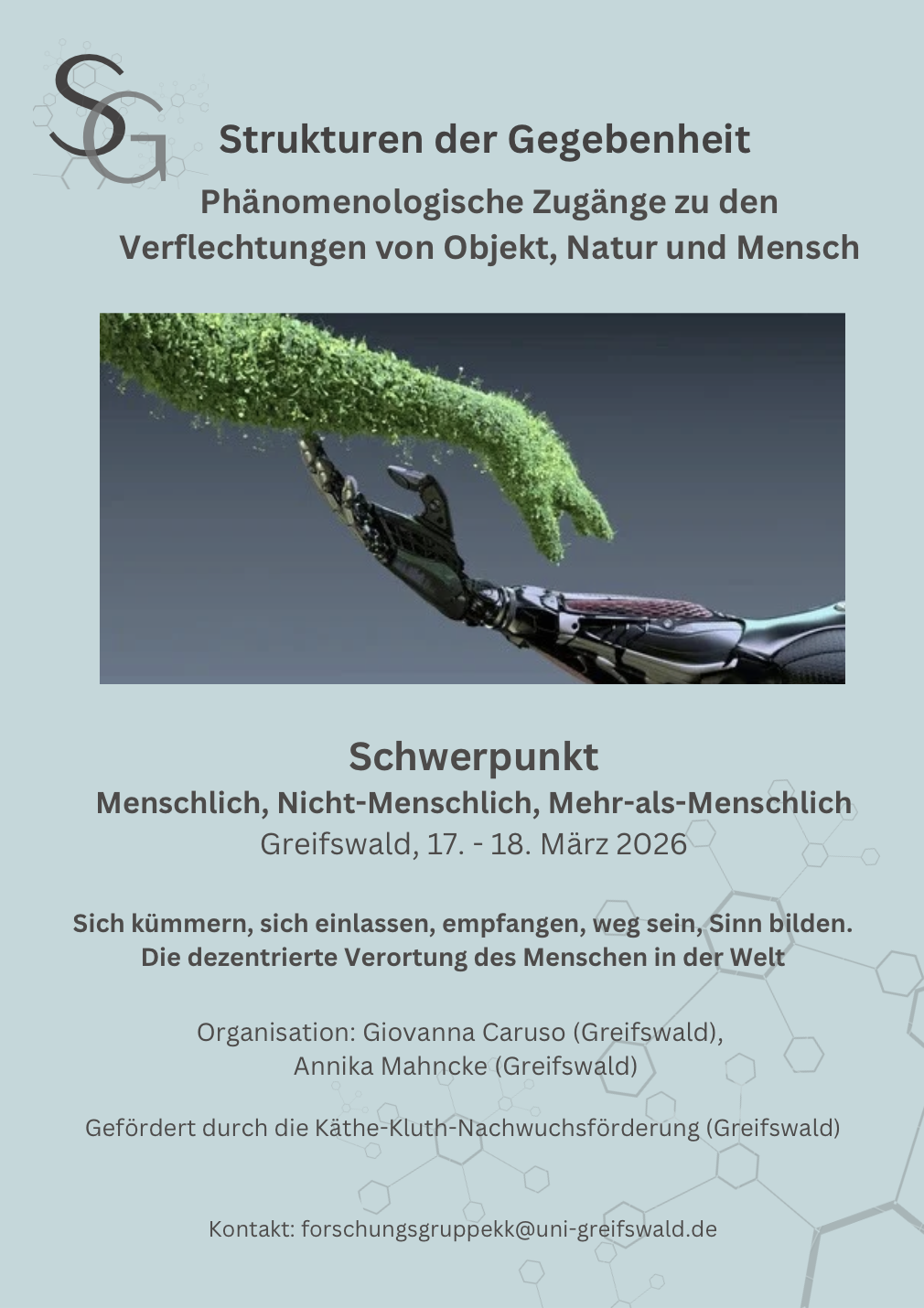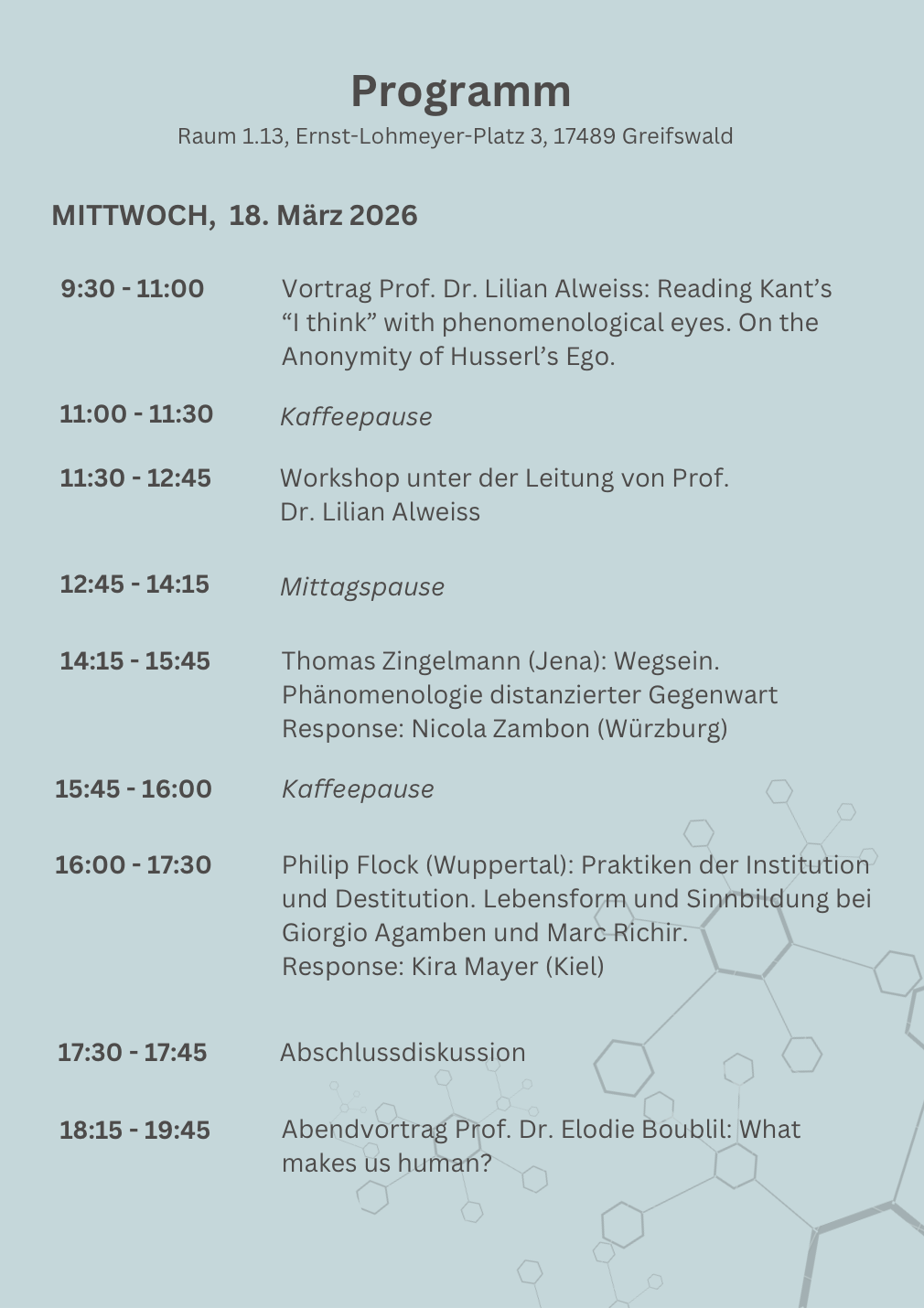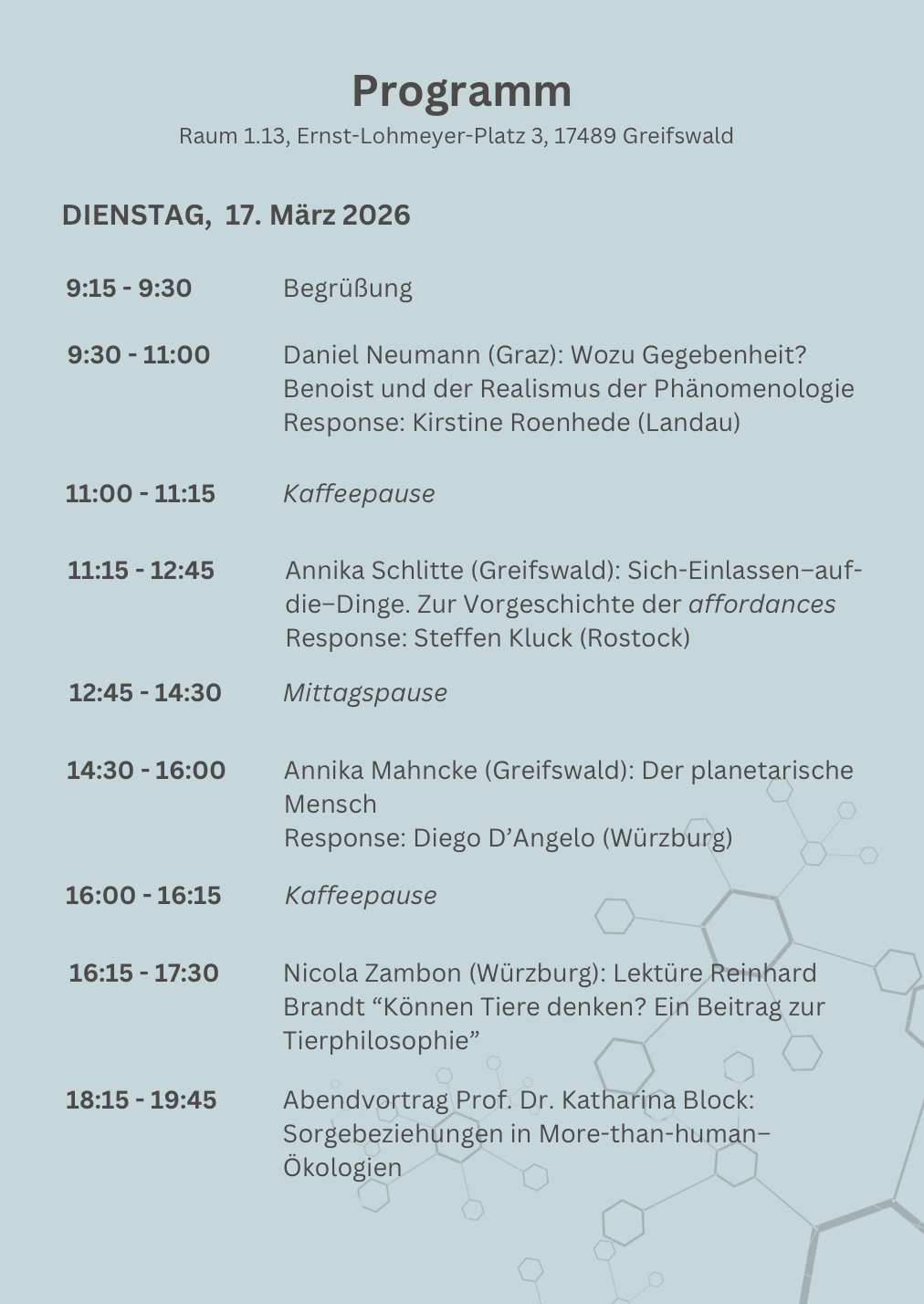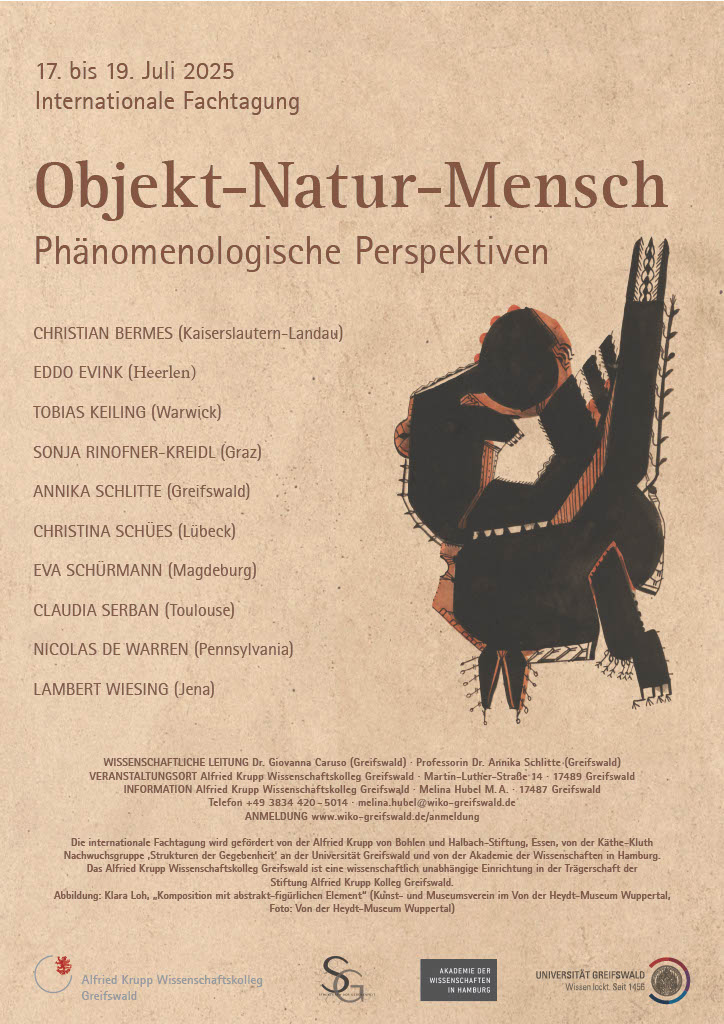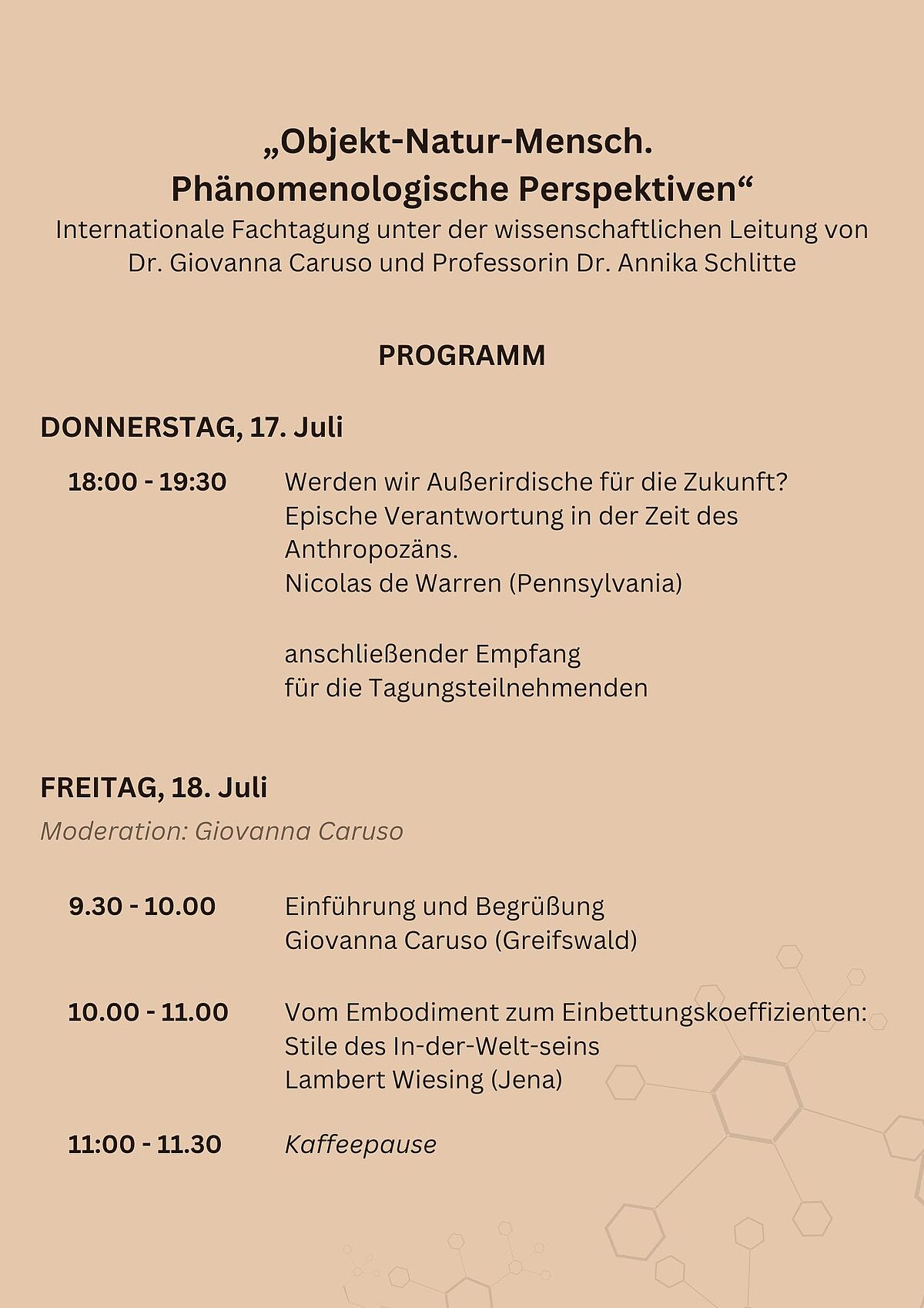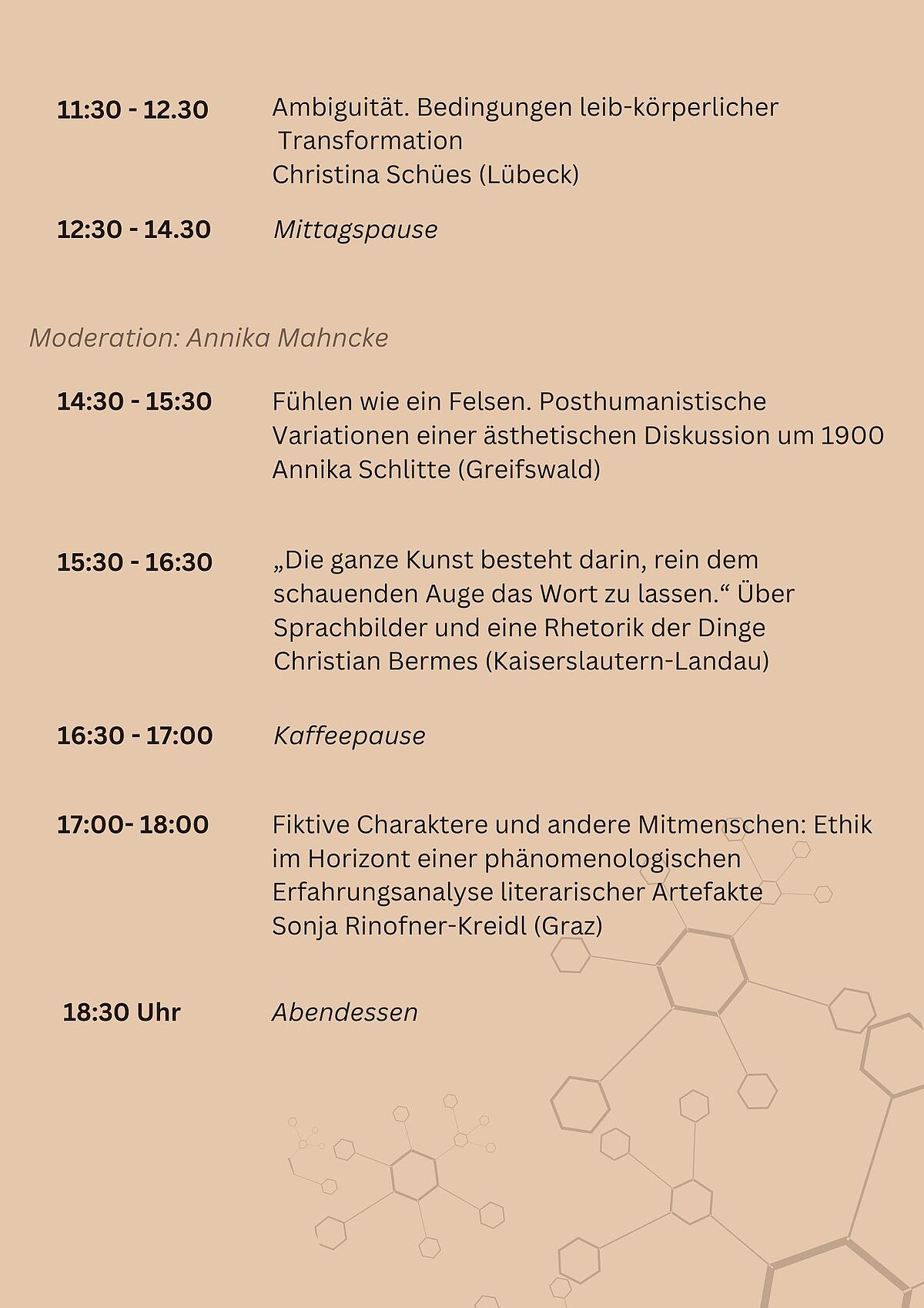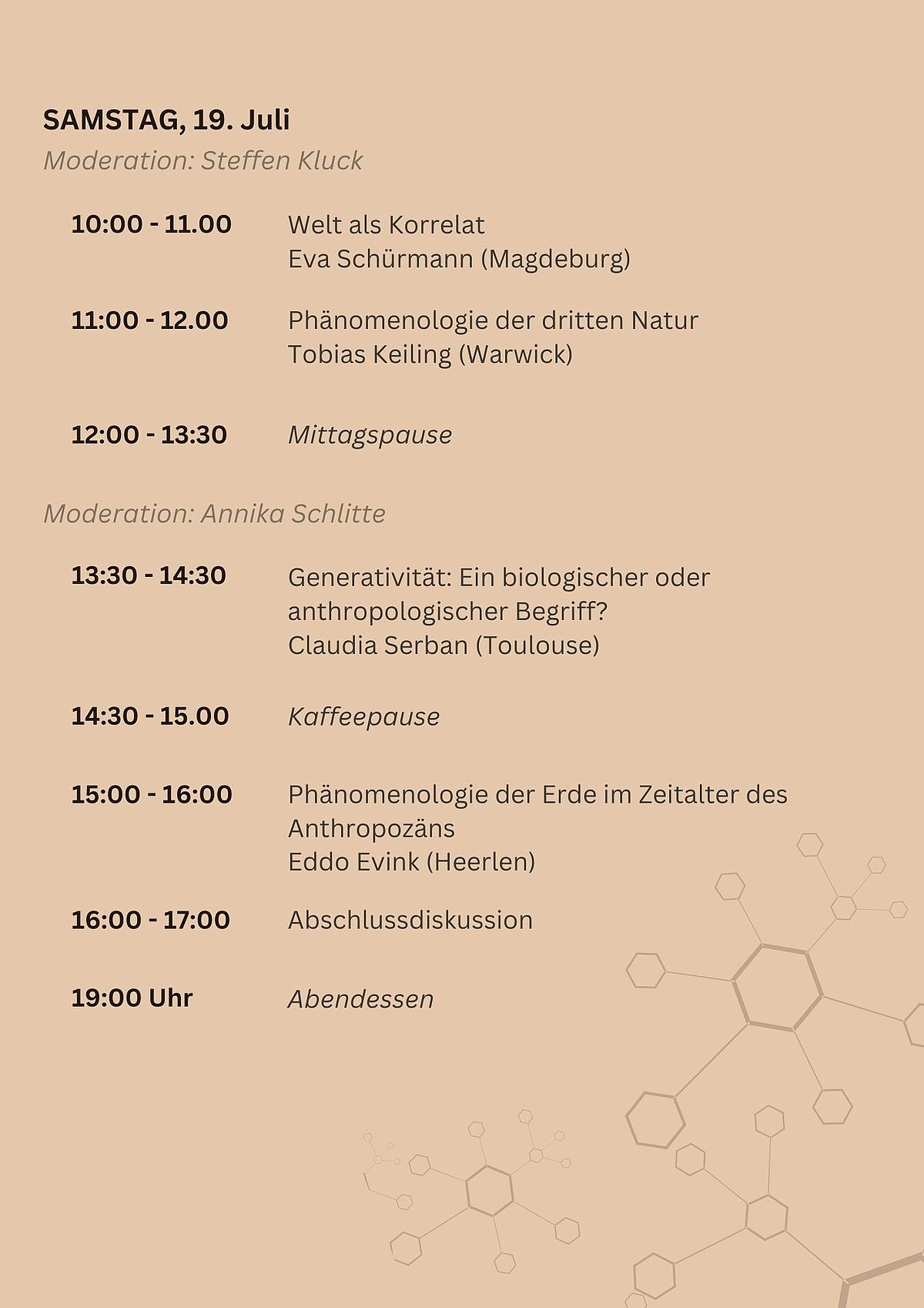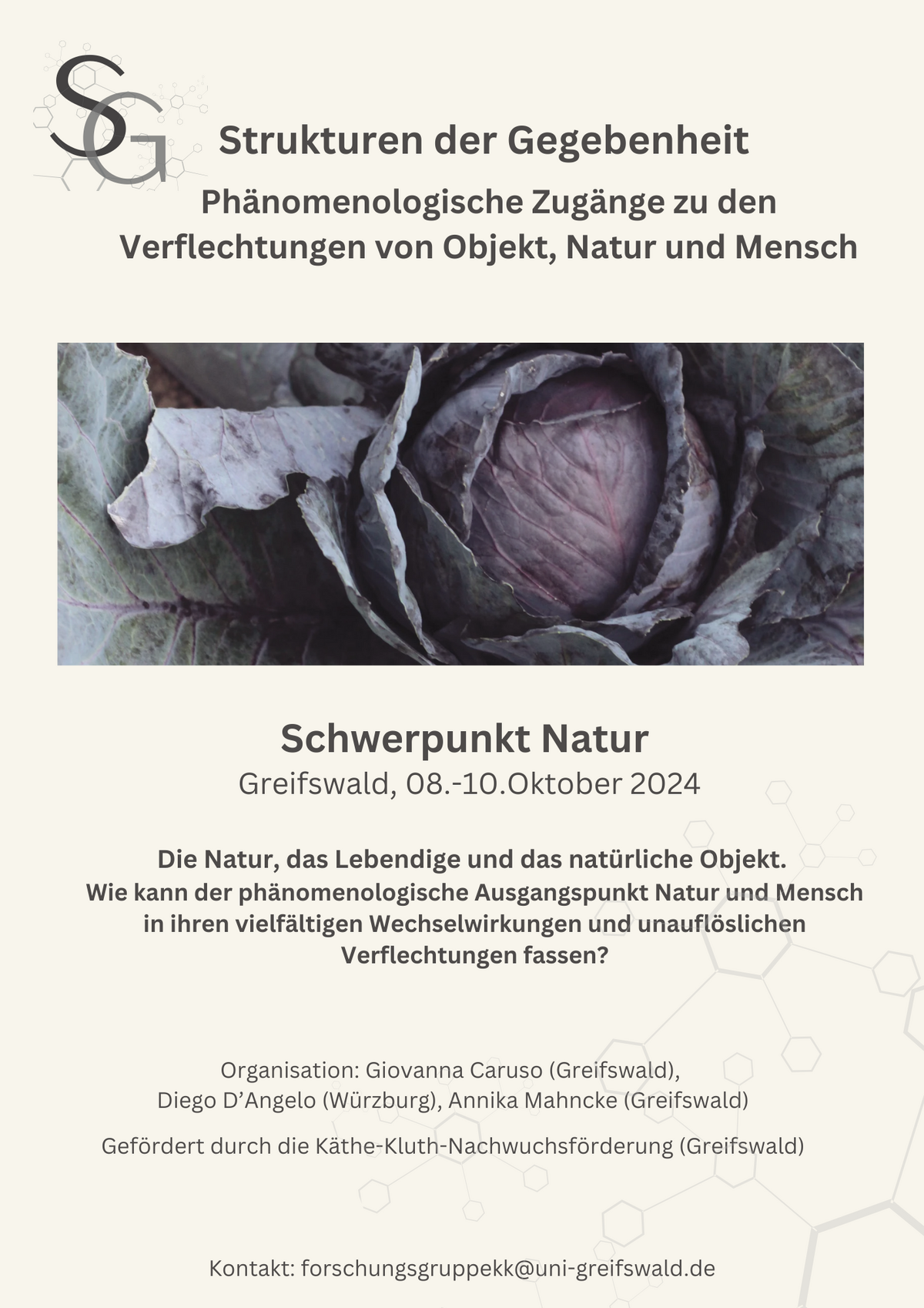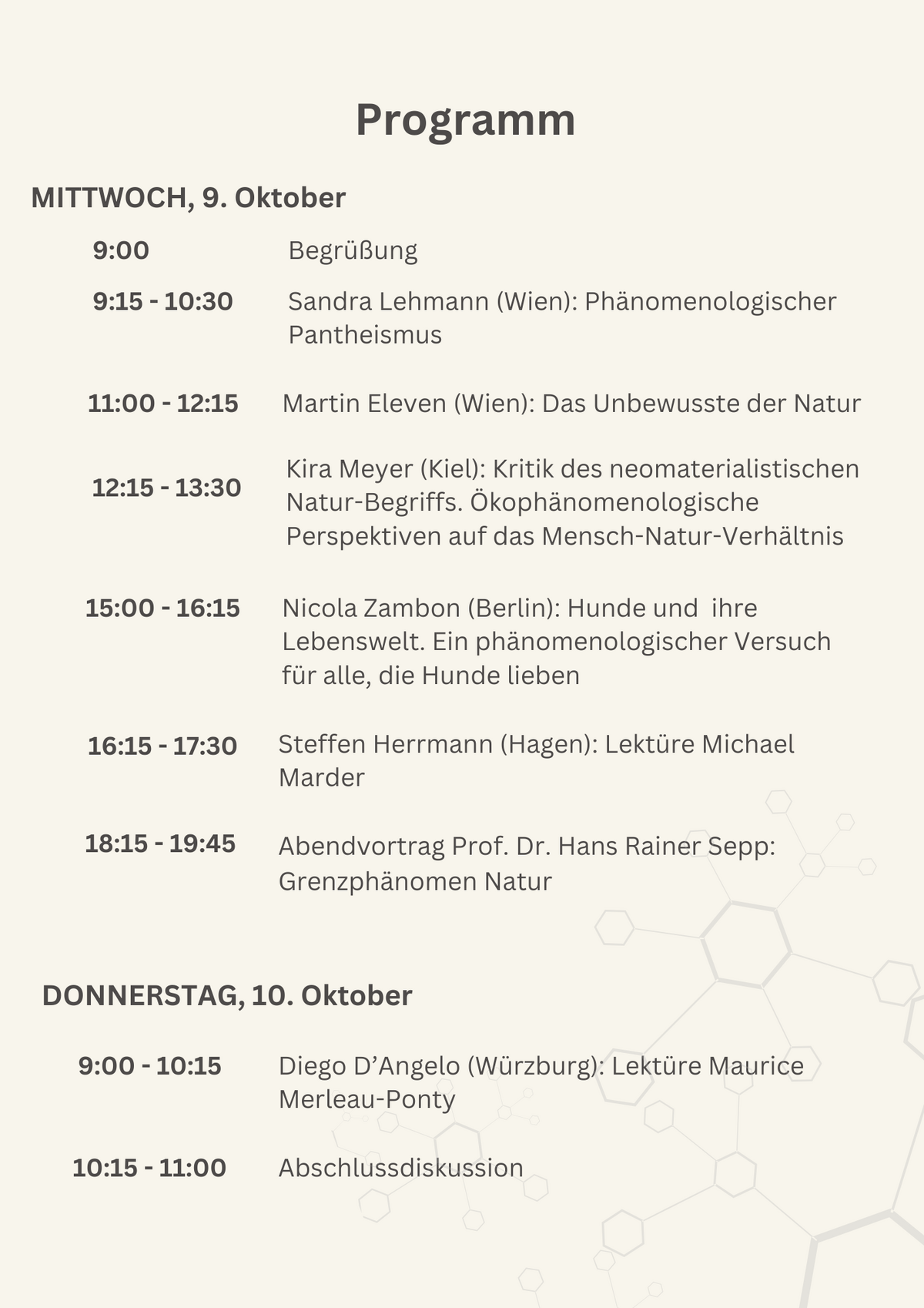
Structures of the Givenness
Phenomenological Approaches to the Entanglements of Object, Nature and Human Being
Käthe-Kluth-Nachwuchsgruppe
Project description
Shoes, ovens, houses, cars, computers, artificial organs and body parts, infinite machines and robots, natural objects and, last but not least, non-human creatures determine everyday human life: they affect people (e.g. an uncomfortable shoe), enable or prevent actions (you can't bake a cake without an oven), replace human body parts (artificial body parts) and actions (computers or robots) or give rise to ethical questions (am I allowed to eat meat or pollute the environment?). The relationship between the human and the non-human is therefore a network of interactions that can be viewed and evaluated differently depending on the type of non-human.
Analysing the non-human in all its forms is one of the main concerns of various current philosophical movements, in particular speculative realism and critical posthumanism, which accuse phenomenology, among others, of making reality dependent on the subjective constitution of consciousness and thereby missing its complexity.
The research group aims to demonstrate the potential of phenomenology for opening up and understanding an increasingly complicated reality. Since phenomenology neither postulates the dependence of reality on a cognising subject (critique of speculative realism) nor does it make use of dualistic thought structures that bring about power relations (critique of posthumanism). Rather, phenomenology starts from the givenness of experience and attempts to express its transcendental structures. Phenomenology therefore presents itself as a philosophy that is able to think of the human being in its multidimensional location in the world between things and other living beings, as well as to analyse a diverse reality that presents itself as a complex interweaving between humans and the non-human and which is therefore sometimes inaccessible through either dualistic or subject-centred forms of thought. The phenomenological approach to the relationship between humans and the non-human thus promises to open up new theoretical and practical perspectives for urgent future issues in the context of ecology, gender studies, the debate on cultural identity or technisation and digitality.
Activities
Current events
17.-18. März 2026 – Workshop: Menschlich, Nicht-Menschlich, Mehr-als-Menschlich
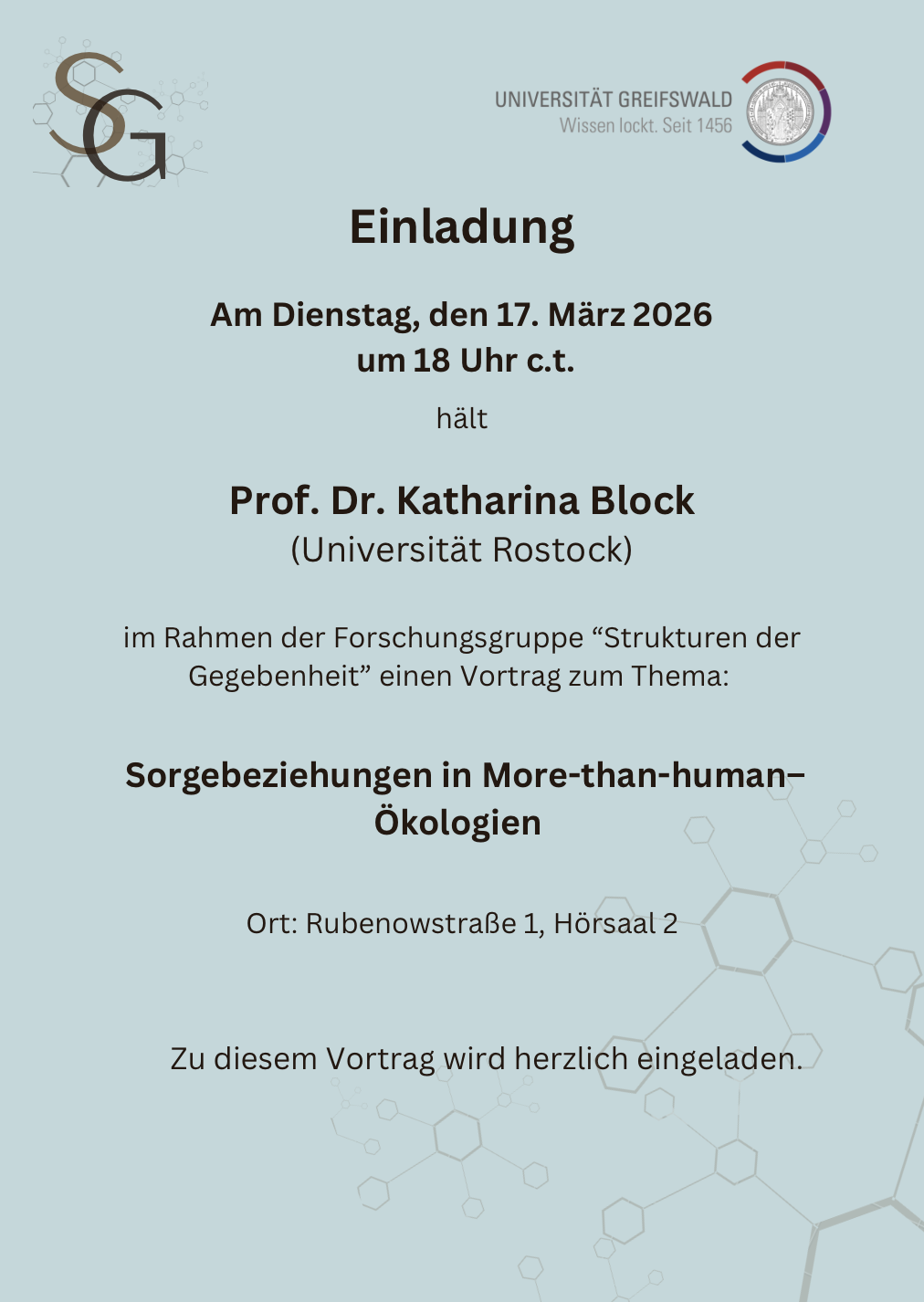
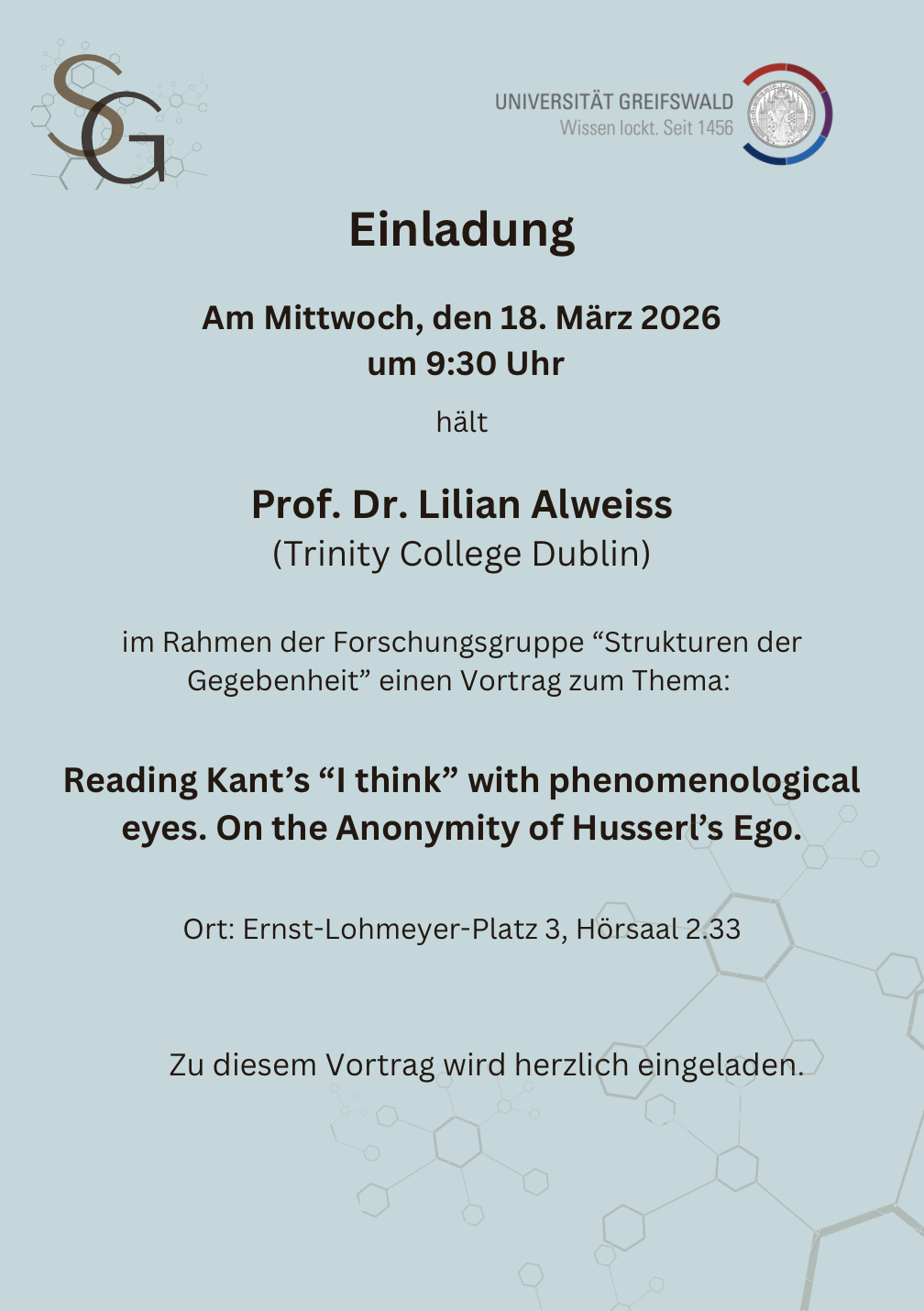
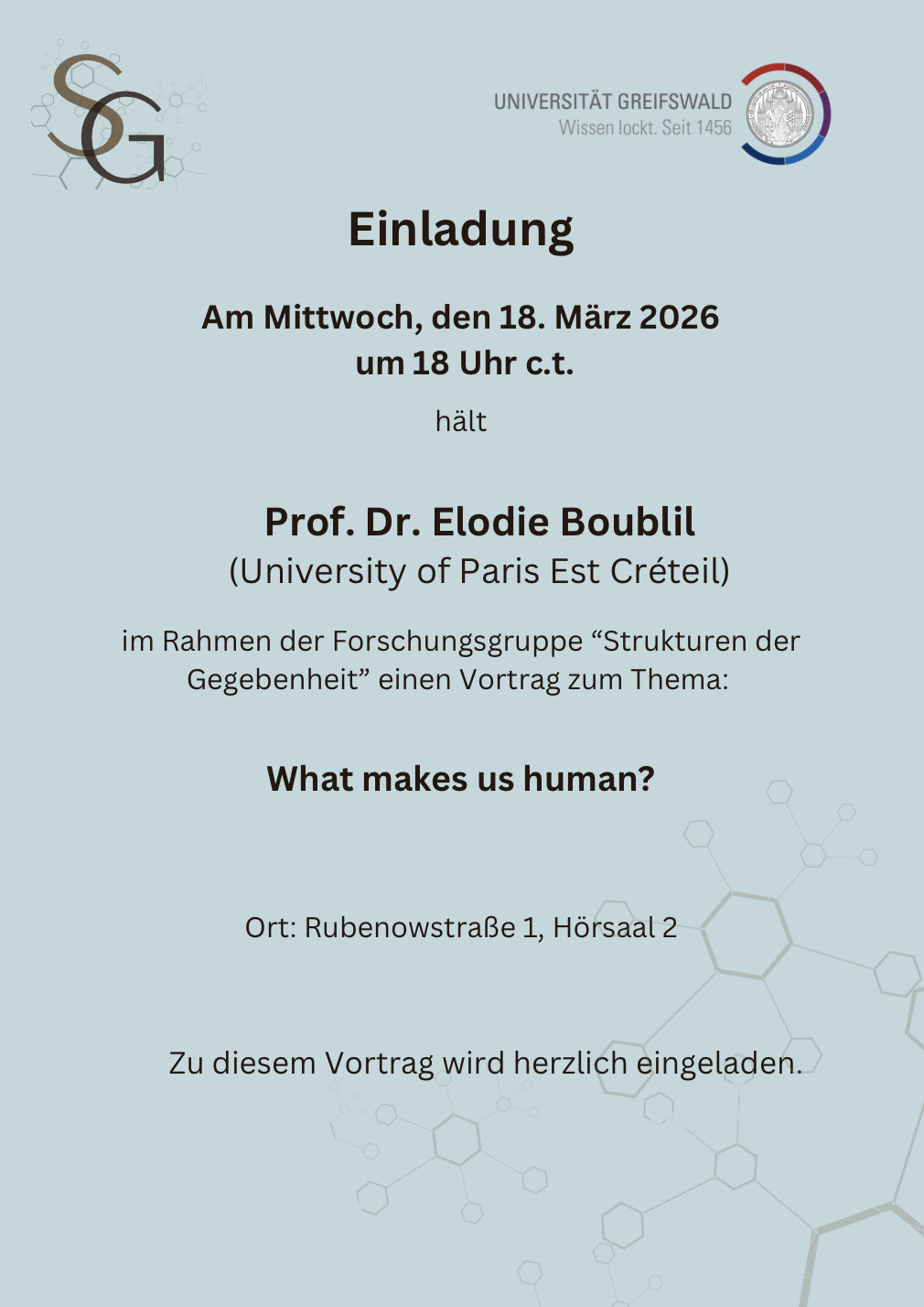
Past events
17.-19. Juli 2025 – Internationale Fachtagung: Objekt-Natur-Mensch. Phänomenologische Perspektiven
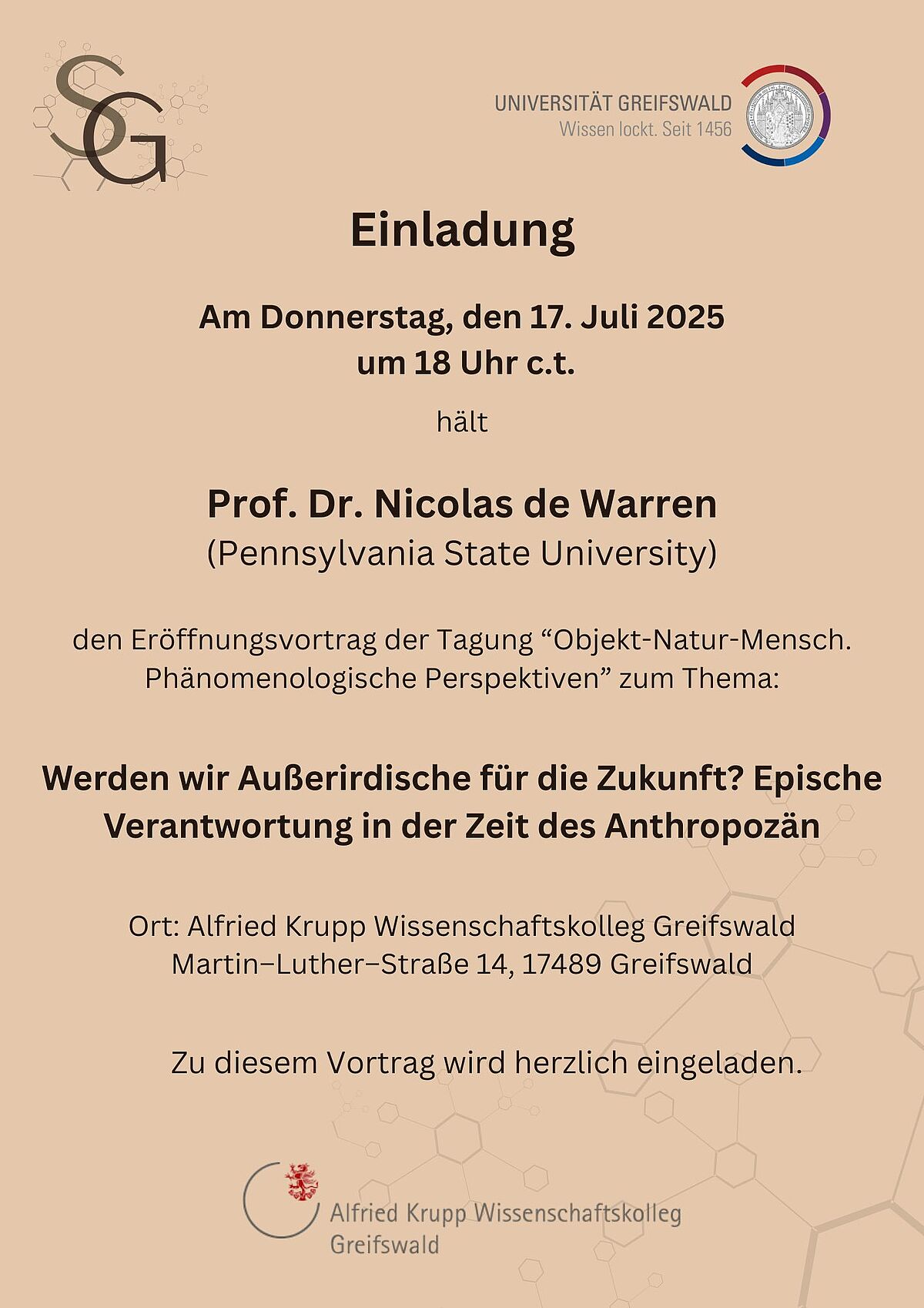
Link to the conference programme: Tagungsprogramm
17. Juli 2025 – Workshop: Schwerpunkt Mensch-Ding
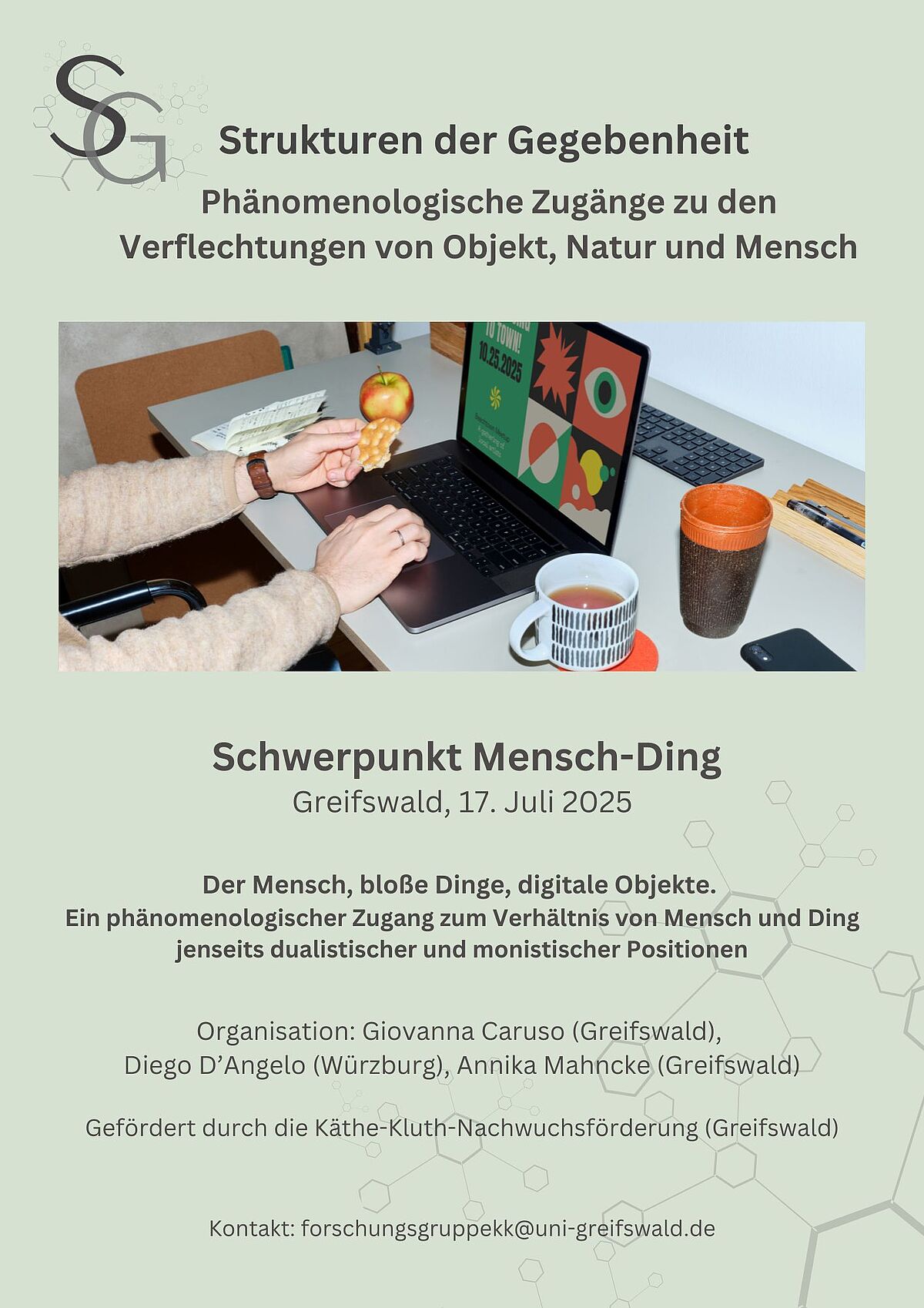
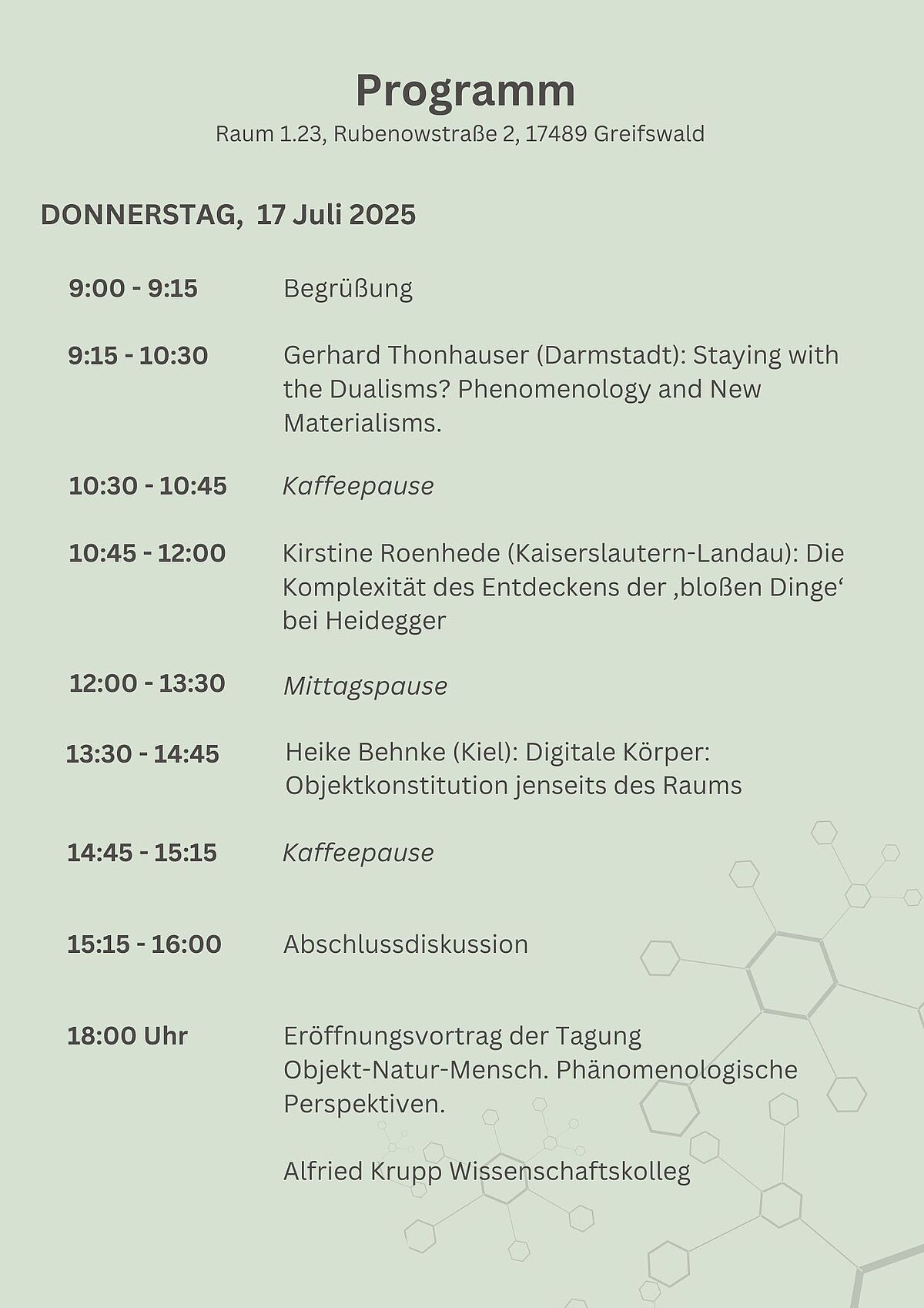
8.-10. Oktober 2024 – Workshop: Schwerpunkt Natur
11. April 2024 – Founding meeting of the Käthe-Kluth Nachwuchsgruppe

